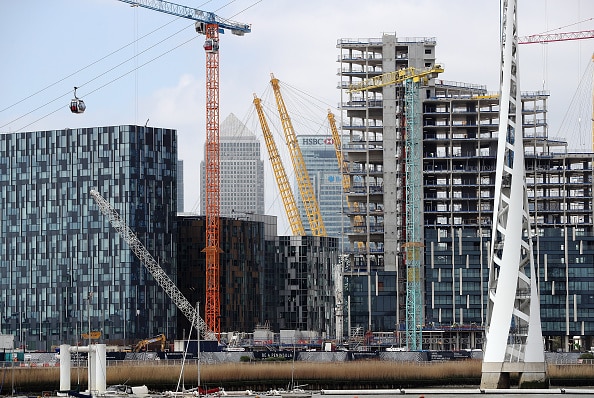GDP growth falls short of expectations, inching 0.1 per cent higher in October

The UK’s economic growth inched just 0.1 per cent in October, according to the latest figures.
The figure remains 0.5 per cent below its pre-pandemic level, the Officer for National Statistic found, falling short of economist and analyst expectations after experts had forecast a 0.4 per cent increase.
Construction and hospitality were among the hardest hit sectors this autumn.
Senior economist at Deloitte Debapratim De said that the data increases the chances of the Bank of England holding back from rising rates next week.
De added that the “contraction in hospitality and accommodation services suggests that demand was already slowing, well before the emergence of the Omicron variant” and that “this, in addition to labour and supply shortages, makes for a weak start to the fourth quarter”.
It comes as the government imposes its Plan B to tackle Covid-19 and contain Omicron cases, which will see fresh restrictions blanketed across businesses ahead of Christmas.
Services output has finally reached its pre-pandemic level, after growing 0.4 per cent in October, which comes as the UK signs a landmark technology trade deal with Singapore, looking to bolster the country’s services exports further.
However, there was a sharp decline in food and beverage services, as the hospitality braces for a tough festive period, with restaurants suffering a 7.5 per cent fall in activities.
“The latest reading for the economy shows just how vulnerable the economy was to a fresh shock,” Hargreaves Lansdown senior investment and markets analyst, Susannah Streeter said, adding that “the spread of the Omicron variant is now set to be the body blow, sending the recovery reeling, while prices continue to climb.”
“After last year’s cancelled Christmas, another watered down celebration will be hard to stomach for the hospitality industry,” Streeter added. “City centres were already struggling to regain pre-pandemic levels of footfall, and now it’s feared they will be deserted once again.”
Production output shrank 0.6 per cent, mostly spurred by reductions in electricity and gas amid a wholesale pricing crisis which has seen an increasing number of suppliers collapse, alongside mining output which fell five per cent.
Lead economist at the CBI, Alpesh Paleja, said: “Growth disappointed in October, reinforcing concerns about the resilience of the UK’s economic recovery to the Omicron variant and the impact of further restrictions.
“We need to create consistency in our approach and build confidence by reducing the oscillation between normal life and restrictions as we learn to live with the virus and its variants.”
Construction – lowest since April 2020
Meanwhile, construction contracted – its largest fall since April last year, after the UK imposed its first lockdown – as it looks to recover 2.8 per cent of its pre-pandemic production, worth around £400m.
The lagging sector has fallen victim to the global supply chain disruptions, raw material cost inflation and labour shortages that have dealt blows to business across an array of industries.
New infrastructure and private new housing were hit hardest by the pandemic-era hang-ups, decreasing 7.1 per cent and 4.4 per cent respectively.
Chancellor Rishi Sunak said: “We’ve always acknowledged there could be bumps on our road to recovery, but the early actions we have taken, our ongoing £400bn economic support package and our vaccine programme mean we are well placed to keep our economy on track.”